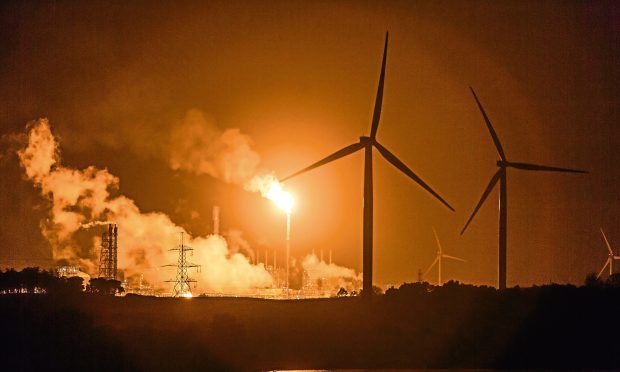Petrochemical companies ExxonMobil Chemical and Shell UK have been served with final warning letters by the Scottish Environment Protection Agency following last June’s serious flaring incident at Mossmorran.
In a report to be published on Thursday the environmental watchdog will reveal it has commissioned a full review of the environmental permits to operate both sites, with a view to strengthening environmental compliance and reducing the impact of flaring on local communities.
An enhanced programme of air quality monitoring has also been announced by the regulator.
The report follows an intensive investigation by SEPA, which included gathering formal statements from local residents.
The regulator found that while flaring was an important safety feature in the event of a process fault, a series of maintenance failures led to elevated levels of unplanned flaring in breach of environmental controls between June 12 and 18, following the breakdown of a condensate pump.
SEPA found residents in local communities surrounding the Fife plant were subject to considerable disturbance in their homes from noise, vibration and black smoke over the seven-day period.
A total of 74 complaints were received by the agency.
SEPA’s chief executive Terry A’Hearn met senior ExxonMobil Chemical and Shell UK executives directly on site at Mossmorran and was clear that “environmental compliance is non-negotiable.”
He said: “Every day, SEPA works to protect and enhance Scotland’s environment and compliance with Scotland’s environmental rules is simply non-negotiable.
“The impact of unplanned flaring from Mossmorran last year was both preventable and unacceptable.
“We’re disappointed that both ExxonMobil Chemical and Shell UK caused an environmental impact on local communities which is why we’ve issued formal final warning letters, have commissioned a full review of environmental permits to operate and an enhanced programme of air quality monitoring.
“It’s clear that further actions are required by ExxonMobil Chemical and Shell UK to ensure the frequency and impact of flaring is reduced, but we’re encouraged by how both companies have responded, committing to respond positively to a strengthening of environmental controls.
“We’ll be working with the Health and Safety Executive, public health partners and communities to together both strengthen environmental controls and deliver powerful transparency over site operations.”
While the final warning letters brings to a close SEPA’s investigation into the plant’s flaring in Junelast year other unplanned flaring incidents, which took place in October 2017 and last month are still under investigation.










